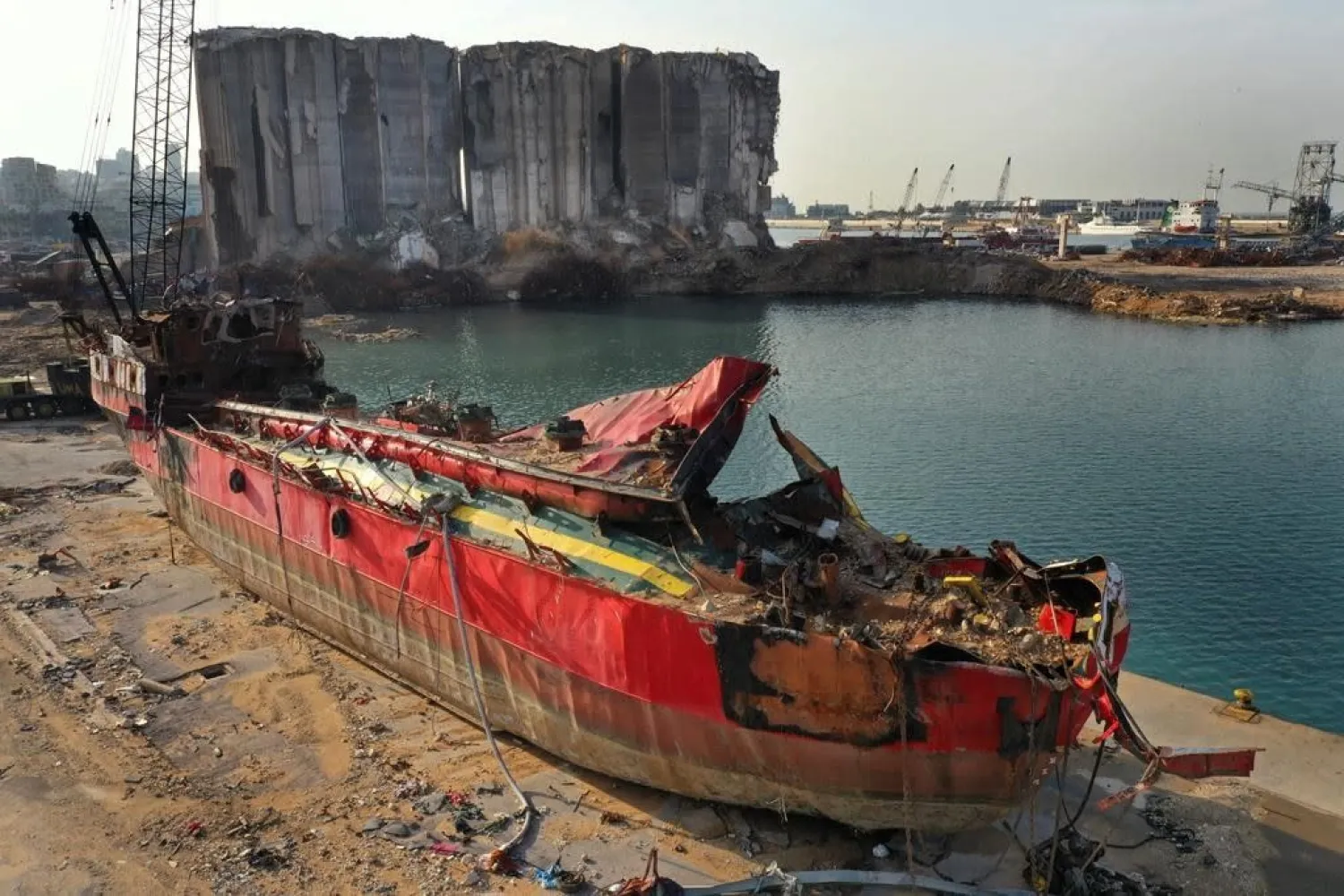A ship prepared Friday to ferry dozens of containers of hazardous materials from Lebanon's capital to Germany, managers of a cleanup project said, months after disaster struck on the dockside.
German firm Combi Lift was tasked with removing dangerous substances from the port after the explosion of hundreds of tons of fertilizer there on August 4 last year killed more than 200 people and ravaged large parts of Beirut.
The last of 59 containers was lifted onto the ship on Friday.
Heiko Felderhoff, CEO of Combi Lift, said they would be disposed of in Germany.
"The ship is here and so on the weekend we are leaving" for Germany, he said at a ceremony on the docks.
Elias Assouad, the head of the Lebanese-German Business Council, said the project had cleared the port of "all toxic, cancerous, flammable and highly reactive chemicals that have been stored here for decades".
The German firm had been expected "to deal with only 49 containers of hazardous material," he said.
But they ended up "handling more than 75, of which 59 will be shipped".
He said 15 others would be "disposed of within safe and environmentally sound procedures in situ", without providing more details.
A chemical expert managing the operation told AFP after finishing the job in February that Beirut only avoided a second chemical inferno by chance.
Michael Wentler said he had "never seen a situation like this before" in his life, describing festering chemical mixtures so corrosive they burned gaping holes right through massive shipping containers.
Hydrochloric acid, a corrosive and toxic substance, made up 60 percent of the chemicals Combi Lift came across, he said.









